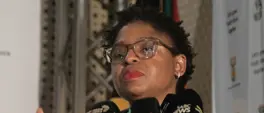Uruguay legalises euthanasia
AFP
16 October 2025 | 8:45The small South American country has a long history of passing socially liberal laws, legalising marijuana, same-sex marriage and abortion long before most others.

Picture: Pixabay.com
MONTEVIDEO - Uruguay on Wednesday legalised euthanasia, becoming one of the first countries in Latin America and among a dozen worldwide to allow assisted suicide.
The small South American country has a long history of passing socially liberal laws, legalising marijuana, same-sex marriage and abortion long before most others.
On Wednesday, euthanasia was added to the list with the Senate approving the so-called "Dignified Death" bill.
Twenty out of 31 legislators present voted in favour, passing a law approved by the lower Chamber of Representatives in August.
The vote came after 10 hours of debate on an issue several lawmakers called "the most difficult."
The discussion was largely respectful and often emotional, though some onlookers watching the debate cried out "murderers" after the vote passed.
"I feel relief and joy," Florencia Salgueiro told AFP after celebrating in the gallery alongside other euthanasia advocates.
Salgueiro had witnessed her father's struggle to receive assistance to end his life when ALS, also known as Lou Gehrig' disease, made his days unbearable. He died without fulfilling his wish.
Elsewhere in Latin America, courts in Colombia and Ecuador have decriminalised euthanasia without passing laws to legalise the practice, while Cuba allows for terminal patients to refuse being kept alive artificially.
Uruguay's ruling party, leftist Frente Amplio, was behind the initiative, which was met with fierce opposition mainly from the religious right.
A recent poll showed more than 60% of Uruguayans support legal euthanasia, with only 24% opposed.
The law allows assisted suicide for adult Uruguayan citizens or residents who are mentally competent and in the terminal stage of an incurable disease that causes them suffering.
Beatriz Gelos, a 71-year-old Uruguayan who has battled neurodegenerative ALS for two decades, told AFP the law was "compassionate, very humane."
In a wheelchair and speaking with a faltering voice, she said opponents "have no idea what it's like to live like this."
Another advocate is Monica Canepa, whose son Pablo, 39, has been paralysed by an incurable disease.
"Pablo is not living. This is not life," she told AFP.
Uruguay's Medical Association has not taken a stance on euthanasia, allowing its doctor members to follow their own conscience.
The Catholic Church, for its part, has expressed "sadness" at the decision.
Get the whole picture 💡
Take a look at the topic timeline for all related articles.

















